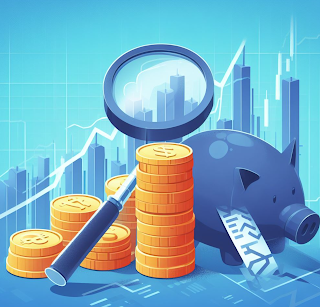Stock Prices vs. Real Economy in One Minute: What Do Soaring Share Prices Tell Us About Main Street?
The stock market and the real economy are not the same thing. The stock market is a collection of shares of public companies that investors can buy and sell, while the real economy is the production and consumption of goods and services by households and businesses. The stock market is much smaller than the real economy, and it does not represent everyone participating in it.
So why do stock prices sometimes go up when the real economy is struggling, or vice versa? There are three main reasons:
- The stock market takes a long-term perspective. Investors buy and sell stocks based on their expectations of future earnings and dividends, not current conditions. Even if the economy suffers a temporary setback, such as a pandemic or a recession, the stock market may still be optimistic about the long-term prospects of some companies or sectors. For example, during the COVID-19 crisis, some technology and pharmaceutical companies saw their share prices soar as they benefited from increased demand for their products and services1.
- The stock market reflects different segments of the economy. The stock market is not a uniform entity, but a diverse collection of companies from various industries and sectors. Some sectors may perform better than others depending on the economic situation. For instance, during an economic downturn, consumers may cut back on discretionary spending, such as travel and entertainment, but increase their spending on essential goods, such as groceries and health care. This means that companies in different sectors may have different impacts on the stock market’s performance2.
- The stock market is influenced by other factors besides the economy. The stock market is not only affected by economic fundamentals, such as GDP growth, employment, and inflation, but also by other factors, such as interest rates, exchange rates, political events, investor sentiment, and market psychology. These factors can create fluctuations in the stock market that are not directly related to the real economy. For example, during periods of uncertainty or volatility, investors may flock to safer assets, such as gold or bonds, and sell riskier assets, such as stocks3.
The bottom line is that the stock market and the real economy are different and complex phenomena that have some connections but also some divergences. While it is important to pay attention to both, one should not assume that they always move in sync or reflect each other’s health. As investors, we should look beyond the headlines and analyze the underlying drivers of both the stock market and the real economy to make informed decisions.


Comments
Post a Comment